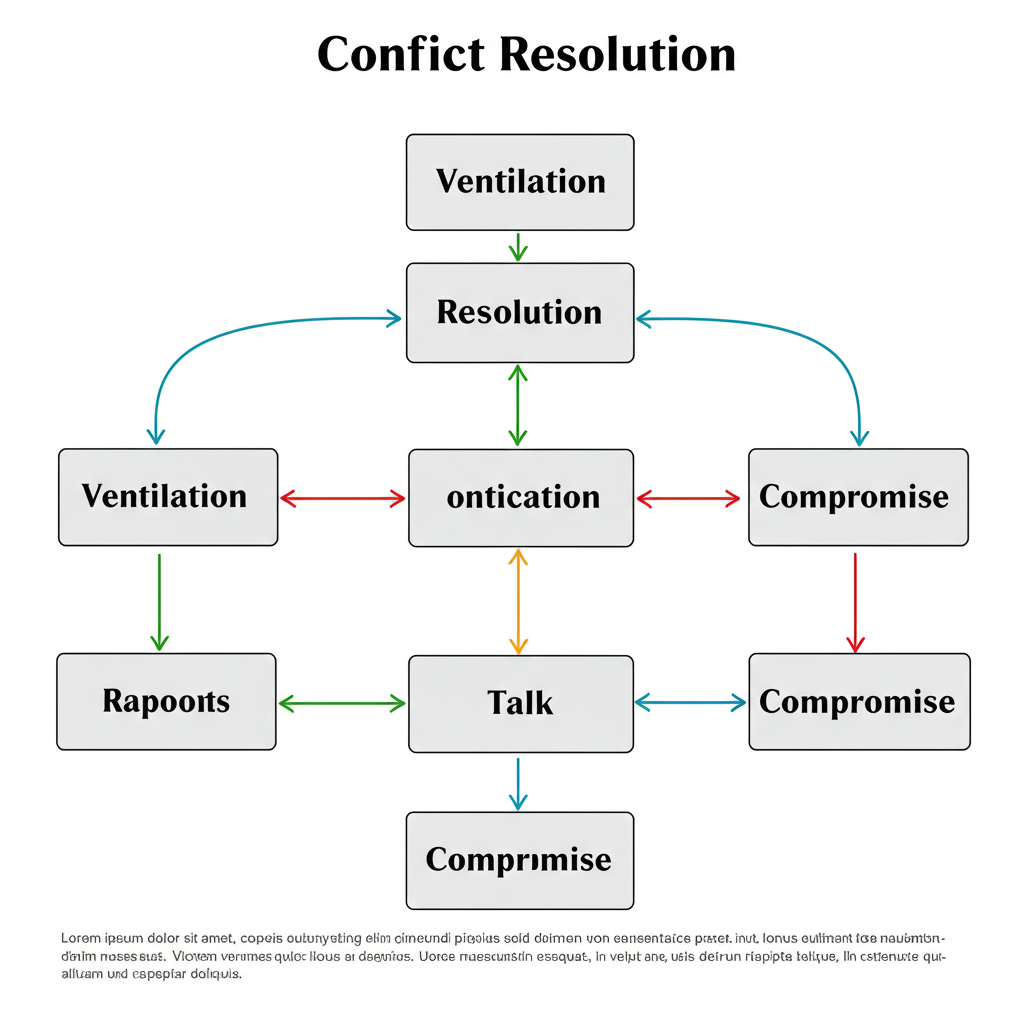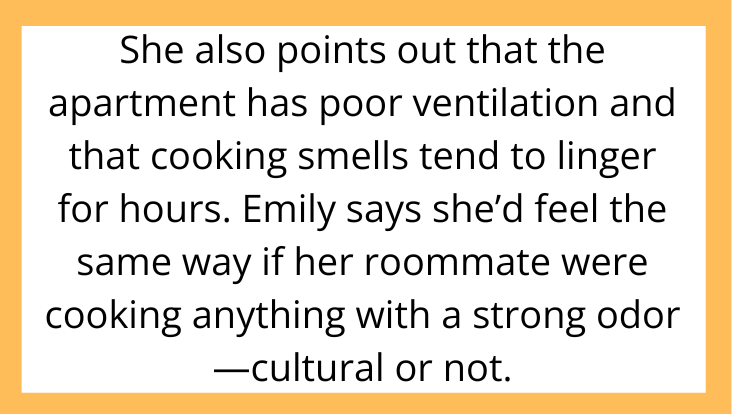AITAH for Asking My Roommate to Stop Cooking Curry Because I Can’t Stand the Smell?
Living with roommates often means compromising on space, schedules, and sometimes…scents. But what happens when personal preferences clash with cultural habits? In this AITAH-inspired story, a seemingly simple request to limit cooking turns into a full-blown debate about respect, racism, and roommate rights.
Let’s unpack it.
The Conflict: When the Kitchen Becomes a War Zone

A 25-year-old woman—we’ll call her Emily—posted on r/AITAH about ongoing tension with her new roommate, Priya, who is originally from India. The issue? Priya cooks traditional Indian meals almost daily, which Emily claims leave a strong, lingering smell throughout the shared apartment.
“I tried to deal with it for the first few weeks,” Emily wrote, “but I just can’t take the smell anymore. It sticks to the couch, my clothes, and I even dream about it.”
Emily said she approached Priya calmly and asked if she could cook curry less often or use less “pungent” ingredients. Priya was shocked and offended, accusing Emily of being culturally insensitive.
Now, the apartment is tense, and Emily is wondering: AITAH for asking my roommate to stop cooking curry in our shared kitchen?
The Case for Emily: It’s About Comfort, Not Culture

Emily insists her request has nothing to do with ethnicity or culture. She argues that certain smells—like strong spices or fish—are difficult for some people to tolerate, and that it’s not unreasonable to ask for moderation in a shared space.
She also points out that the apartment has poor ventilation and that cooking smells tend to linger for hours. Emily says she’d feel the same way if her roommate were cooking anything with a strong odor—cultural or not.
From her perspective, it’s a matter of shared living expectations. She’s not banning Indian food altogether—just asking for compromise.
The Case for Priya: A Request That Feels Like Rejection

On the flip side, Priya feels personally targeted. Cooking is not just about food for her—it’s a connection to home, identity, and routine. Being asked to change that felt, to her, like being told to erase part of who she is.
She noted that Indian cuisine naturally uses spices like turmeric, cumin, and garlic. It’s not easy—or authentic—to make the food smell less. And asking her to stop cooking curry is, in her view, like asking someone to stop being themselves.
She also questioned whether Emily would have made the same request if she were cooking bacon or blue cheese. To Priya, the complaint reeks of a double standard.
Reddit Reacts: A Divided Verdict

As with many r/AITAH stories, Reddit users were sharply divided.
Top-voted comment:
“You’re not wrong for being sensitive to smells—but YTA for how you handled it. You moved in with someone from a different culture. You should’ve been prepared for some differences.”
Another perspective:
“NTA. Shared living spaces mean shared responsibility. If someone’s cooking is making you uncomfortable every day, it’s fair to ask for adjustments—nicely.”
Many pointed out that it’s less about what was said and more about how it was said. Emily may have valid concerns, but Priya’s hurt feelings are just as valid.
Roommate Etiquette: Where Do We Draw the Line?

It’s a Shared Home, Not a Solo Space
Living with someone means respecting their habits, but it also means being honest about your limits. The challenge is navigating that tension with kindness and flexibility.
Here are a few questions every roommate should ask themselves:
-
Is this request about comfort or control?
-
Am I making assumptions about someone based on cultural bias?
-
Is there a compromise that respects both parties?
Emily could have proposed solutions—like air purifiers, opening windows, or cooking during certain hours—instead of just asking for less curry.
Cultural Sensitivity or Cultural Clash?

What makes this AITAH case so complicated is that it’s not just about smells—it’s about identity.
Food is culture. It’s memory, home, and expression. Asking someone to change the way they cook can feel like asking them to be someone else. And in diverse cities and households, this question is increasingly common.
Yet, everyone also deserves to feel comfortable in their home. Smells, noise, and habits all affect our living experience. It’s okay to have boundaries—as long as they’re applied fairly.
How This Could Have Been Handled

For Emily:
-
Frame the conversation around shared comfort, not personal disgust.
-
Offer to invest in ventilation or air filters together.
-
Avoid singling out “curry” and instead discuss general ventilation issues.
For Priya:
-
Acknowledge that strong smells can be overwhelming for others.
-
Consider compromise: timing meals, using exhaust fans, or sealing leftovers better.
-
Recognize that while culture is important, so is roommate harmony.
Final Verdict: Communication Is the Real Issue

So, is Emily the villain? Maybe not—but her delivery certainly didn’t help.
This AITAH case isn’t black and white. It’s a lesson in living with empathy, where both people are right—and both have room to grow.
Living with others is rarely easy. But open, respectful communication can turn conflict into connection—if you let it.


